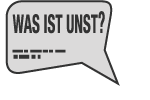“Welcome to the City Theatre of the Future”: Invitation to NTGent’s Season Presentation 2018/19 on Friday, 18 May
Never before has a production by Milo Rau been so hotly awaited as “La Reprise / The Repetition”, which premiered at the National Theatre in Brussels on 4 May 2018. The play, which deals with the murder of homosexual Ihsane Jarfi in 2012 and culminates in a 20-minute torture scene, was celebrated by the public and the press alike. “Cruel murder becomes a theatrical masterpiece”, wrote the Standaard, Bruzz saw a “hammer blow”, Le Soir a “homage to all the possibilities of theatre”, Belgian television RTBF a “new ‚great’ Milo Rau, that puts all drama at distance to move us deeply”, DIE ZEIT a “grandiose reconstruction (…) of glistening beauty”, La Libre Belgique finally a “masterpiece (…) that will shape theatre history”.
At the same time, the depiction of senseless violence, with which Rau ties in with his classical re-enactments such as “The Last Days of Ceausescu’s” as much as with the metatheatre etudes “Five Easy Pieces” or „The 120 Days of Sodom“, led to rejection, especially in its celebration of theatre means: “No matter how much meta Rau expands his theatre, he does not question his own position”, the magazine Et-cetera wrote. Form your own opinion: Starting Wednesday 16 May, “La Reprise” will be shown at NTGent (some tickets are left for Saturday, 19 May), then the production will move on to the Théâtre Vidy Lausanne, Kaserne Basel, the Berlin Schaubühne, the Festival d’Avignon, the Romaeuropa Festival and the Paris Festival d’Automne, among many other venues.
Milo Rau’s first season as artistic director will also be presented in Ghent this week in the context of the guest performances of “La Reprise / The Repetition”. On Friday, 18 May 2018, at 7 pm, the “Ghent Manifesto” will be read out in the NTGent’s Schouwburg and the artists and productions of the 2018/19 season will be presented. A “City Theatre of the Future” is to be created in which local and global production methods of the independent scene are blended with those of a large city theatre with four stages: a free, open production house with an international ensemble and guests, school and workshop of the theatre – which, not least of all, continually questions its own position and vision.


